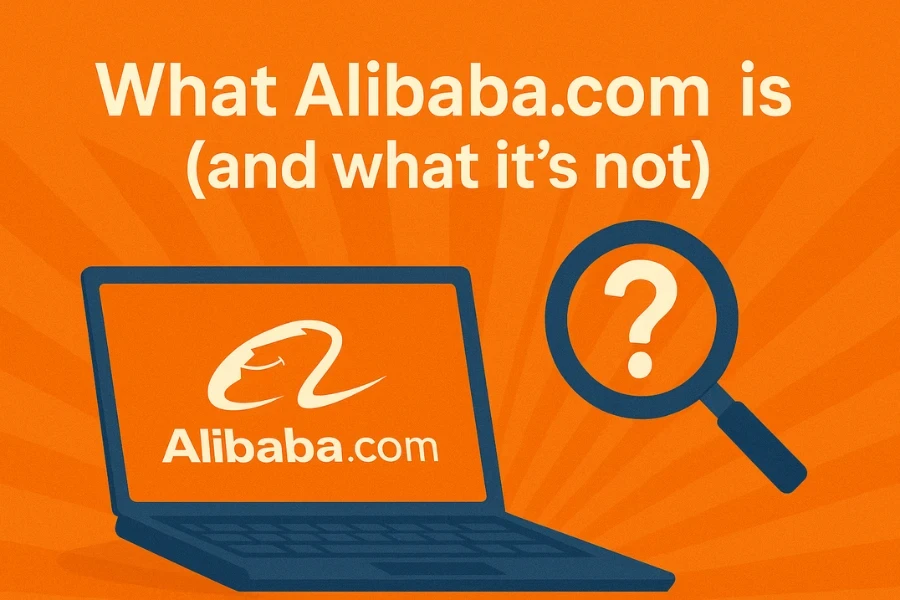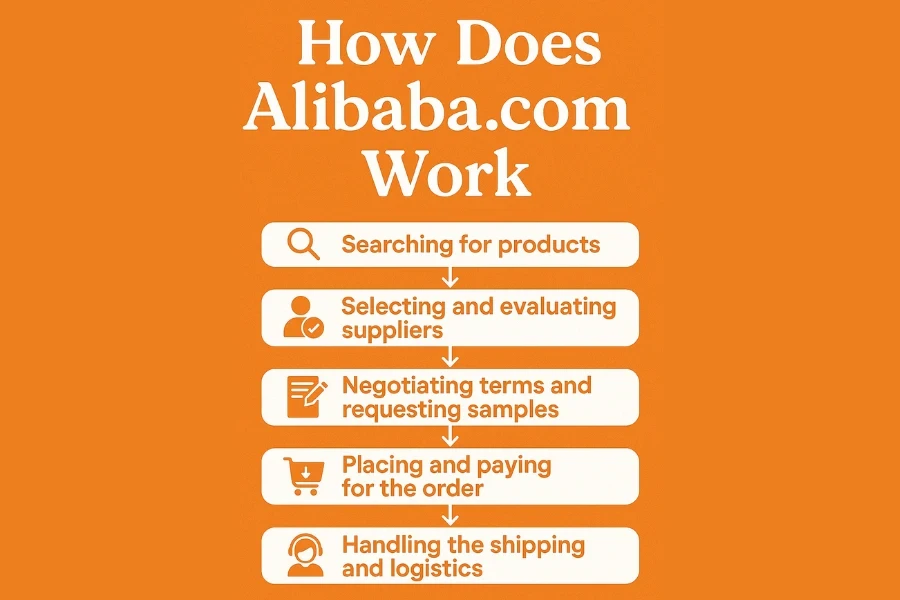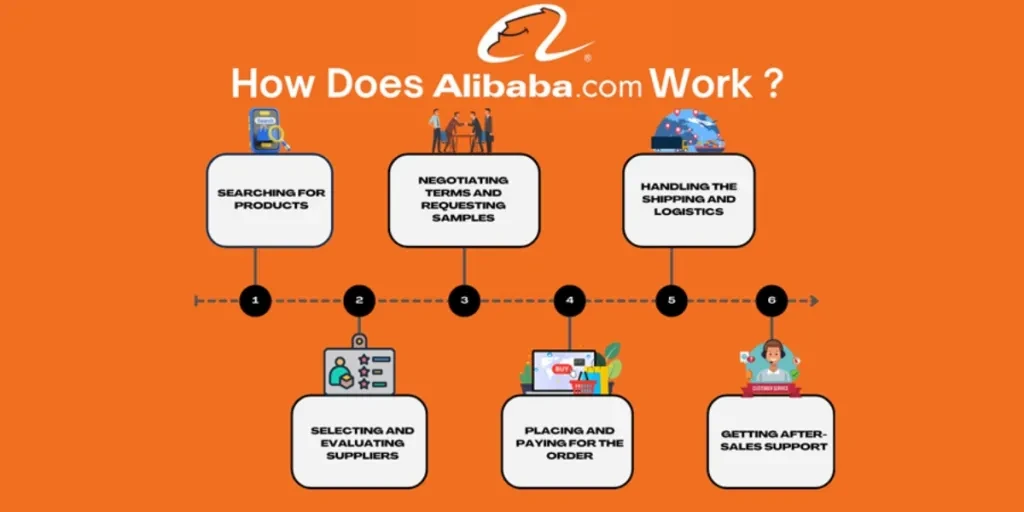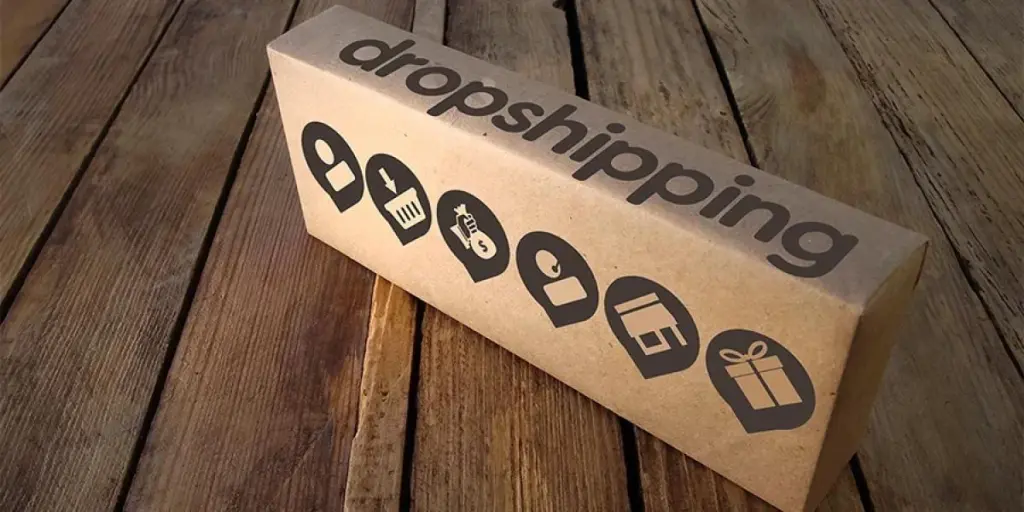With the rise of digital procurement, online marketplaces like Alibaba.com have become well-known to everyone—from seasoned business buyers to the average consumer.
However, many people still hold misconceptions about how Alibaba.com actually works. Is this giant e-commerce platform selling Chinese products? Are the suppliers on the marketplace vetted by Alibaba.com? And what tools and features does it offer to buyers to make their sourcing experience efficient and easy?
In this guide, we’ll explain what Alibaba.com truly is and how it works from a buyer’s perspective—from finding products and placing an order to shipping and after-sales services. So, without further ado, let’s explore the ecosystem of Alibaba.com and uncover how it simplifies the sourcing journey for business buyers!
Table of Contents
1. What Alibaba.com is (and what it’s not)?
2. How does Alibaba.com work?
3. The Alibaba.com playbook is in your hands now
What Alibaba.com is (and what it’s not)?

Alibaba.com, a subsidiary of the Alibaba Group, is a business-to-business (B2B) marketplace, where buyers can source virtually any type of product—from clothing and electronic gadgets to industrial equipment and machinery. Sellers are based all over the world, although most are located in Asia. However, many people still mistakenly believe that Alibaba.com itself sells products.
In reality, Alibaba.com doesn’t stock inventory or sell products—none at all. This mega e-commerce platform works as an intermediary, connecting business buyers with global suppliers, primarily wholesalers and manufacturers. Think of it as a colossal matchmaking platform, but instead of pairing individuals, it matches buyers with sellers who meet their product requirements.
Now, one might wonder: is Alibaba.com solely for businesses placing bulk orders? While its primary audience consists of B2B buyers—such as wholesalers, retailers, brick-and-mortar store owners, and brands—dropshippers can also use the platform to connect their online stores and ship single items directly from suppliers to customers.
But can a normal person order from Alibaba.com? Technically, yes. Most suppliers on the platform allow buyers to purchase one-item samples. However, for casual shoppers, AliExpress (another B2C subsidiary of the Alibaba Group) is often a more convenient option.
Now that we know what Alibaba.com is (and what it is not), one might ask: how does the platform make money if it’s only acting as a middleman? The answer isn’t that mysterious. Alibaba.com generates revenue primarily through membership subscriptions that suppliers pay annually to advertise their products on the platform.
Before diving into the details of how Alibaba.com works, let’s address the elephant in the room—a question many new buyers ask: Is Alibaba.com legit?
After all, the platform is based in China, and the products listed are often known for their remarkably low prices. The short answer is yes—Alibaba.com is a legitimate, well-established B2B marketplace and one of the largest in the world.
However, while the platform itself is trustworthy, buyers should always exercise due diligence when selecting a supplier. Fortunately, Alibaba.com offers several features to help protect buyers from fraudulent vendors.
How does Alibaba.com work?

To explain how Alibaba.com works, let’s step into the shoes of a potential buyer and walk through the sourcing journey—exploring the platform’s ecosystem and its components along the way. Here’s how this B2B platform works in 6 steps:
1. Searching for products
The buyer’s journey begins with searching for the right products on Alibaba.com. Fortunately, the platform offers several efficient methods for product searches:
- 🔍Keyword Search: Starting with descriptive keywords is a simple and effective way to find relevant products. However, vague keywords can lead to irrelevant or confusing results. Imagine searching for “strong bags” only to get listings for “cement sacks”! Additionally, suppliers sometimes use alternative spellings for their products. For example, searching for “toaster” might yield better results if you include variations like “bread heating machine.”
- 📸Image Search: For buyers who know the product they want but struggle to describe it, Alibaba.com has a solution. Instead of crafting long, awkward keyword searches (such as “folding shelf that turns into a table but isn’t a shelf-table”), buyers can simply click the camera icon in the search bar, upload a photo or screenshot, and let the platform do the work.
- 🔄Find Similar: This feature allows buyers to discover curated lists of items that closely match an original product. It’s particularly useful when a buyer finds an almost-perfect item with one lacking feature. For instance, if a buyer finds a “women’s beach dress” with the perfect size, material, and price but it isn’t available in red color, clicking “Find Similar” can help uncover similar dresses with the desired color—or even better pricing.
For optimal search results, buyers are advised to combine these three search methods. Additionally, filters can be applied to narrow down results based on price, material, Minimum Order Quantity (MOQ), supplier type, and more.
Moreover, buyers can add products to their favorites list and save search keywords. This feature is invaluable when browsing large numbers of products and later comparing options based on criteria like price, specifications, MOQs, and shipping times.
2. Selecting and evaluating suppliers
Searching and finding products on Alibaba.com is only the starting point. What separates seasoned business buyers from beginners is knowing how to select the right supplier from a pool of hundreds. As discussed earlier, B2B sellers use Alibaba.com as a centralized marketplace to advertise their products. Suppliers on Alibaba.com can be categorized into two groups:
- 🥇Gold Suppliers: Gold Suppliers are vendors who pay an annual fee to list their products and gain better visibility on the platform. Gold Supplier status confirms that a company has completed key verification steps, such as business registration and licensing, though it’s still recommended that buyers conduct additional checks based on their specific sourcing needs. Think of Gold membership as an initial filter to deter scammers, as they would need to pay significant annual fees to be listed as suppliers on the platform.
- 🔷Verified Suppliers: Verified Suppliers undergo extensive third-party inspections and verifications. The reports from these audits are publicly accessible on their profile home page, where buyers can check their factory in action, production capabilities, product certifications, business licenses, on-site photos and videos, and sometimes even 360° Virtual Reality (VR) Showrooms. These features help buyers explore the production lines, showrooms, and assembly areas. It’s highly recommended for beginners to start sourcing from Verified Suppliers to avoid potential scams.
💡Pro tip: Check these 7 essential tips to avoid scams while searching for reliable suppliers on Alibaba.com.
When selecting suppliers, it’s important to distinguish between the two types of vendors on Alibaba.com:
- 🏭Manufacturers: These suppliers produce, manufacture, and assemble products in-house, owning the process lines, equipment, and machinery. Their stores usually contain products of a single or similar categories.
- 💼Trading companies: These vendors act as middlemen between buyers and manufacturers. They source products wholesale and resell them at a profit. Their stores often contain products from various, unrelated categories, such as food items alongside home furniture.
Sourcing from manufacturers is usually ideal for buyers looking for customized or private-label products, but the price-per-unit is typically higher, with higher MOQs. On the other hand, trading companies are a good choice for buyers looking for ready-to-ship products at lower prices with reasonable shipping times.
3. Negotiating terms and requesting samples
Just because a product price seems highly competitive and a supplier’s profile is filled with impressive photos and videos of their facilities, it doesn’t mean buyers should immediately place an order. It’s important to establish initial contact and negotiate with suppliers on at least the following key elements:
- Pricing: For buyers planning to source large volumes or place repeated orders, it’s wise to leverage purchasing power by negotiating discounts and lower unit prices.
- MOQ: Buyers intending to place long-term, repeated orders should aim to convince suppliers to lower their MOQ requirements. This allows buyers to start sourcing with smaller, incremental order sizes and gradually increase them if the product quality remains consistent.
- Lead times: It’s important to discuss the feasibility of product specifications upfront, particularly in cases where customization is needed. Buyers should also establish clear and realistic timelines with the supplier to prevent delays later on.
- Shipping and logistics: Never place an order without first discussing shipping details such as Incoterms, estimated delivery times, and responsibilities for customs clearance and associated costs. These details ensure smooth logistics and avoid unexpected expenses.
💡Pro tip: Buyers can order single-item samples from suppliers on Alibaba.com, and it’s recommended to request samples from multiple suppliers—or even from the same supplier using different buyer accounts. This helps assess product quality, shipping times, and after-sales service.
Thankfully, Alibaba.com offers two options for connecting with suppliers:
- Direct inquiry: Buyers can initiate conversations with suppliers easily by clicking the “Contact Supplier” or “Send Inquiry” button on the product details page.
- Request for Quotation (RFQ): Ideal for buyers who want to compare offers from multiple suppliers. Instead of messaging every supplier individually, buyers can submit an RFQ with detailed specifications, budget, and timeline. Suppliers will then respond with their offers, eliminating the need for manual outreach.
4. Placing and paying for the order
Once the order details are finalized, the next step is to proceed with payment. Alibaba.com supports a variety of payment options, including:
- 💳Credit/Debit card: This option is ideal for small to medium-sized orders under US $12,000. Payments are typically processed within 1-2 days.
- 🅿️PayPal: This is another quick payment method for orders below US $12,000, offering the added benefit of buyer protection in case refunds are needed.
- 📲Apple Pay/Google Pay: Alibaba.com also supports mobile payment solutions such as Apple Pay and Google Pay, which are processed faster—usually within 1-2 hours.
- 🔄Afterpay/Clearpay: These options are perfect for buyers who prefer deferred payments on a bi-weekly basis. Payments are interest-free provided they are made on time. However, this method is limited to transactions under US $2,000.
- 🏦Wire Transfer (T/T): Wire transfer is a traditional payment method that is typically suitable for large orders. While flat fees become negligible with high-value transactions, this method requires more processing time—often up to 7 days.
💡Pro tip: Always ensure the supplier supports Trade Assurance when making payments on Alibaba.com. Buyers can easily check this by filtering product search listings to display only vendors who support this service.
Trade Assurance protects buyers by holding payment until the buyer confirms satisfactory receipt of goods. However, to benefit from this protection program, all transactions must be conducted through Alibaba.com’s platform. Payments made via external channels will not qualify for this coverage.
5. Handling the shipping and logistics
Now that the order is placed and payment has been processed, buyers might wonder: how does Alibaba.com shipping work? Buyers must consider the logistics and how goods will be shipped from the supplier’s factory to their doorstep. Typically, there are two main options for managing shipping and logistics:
- Let the supplier handle it: Buyers can negotiate with the supplier to manage the shipping process for an additional fee. This option minimizes the hassle of organizing logistics and dealing with customs paperwork. It is recommended for first-time business buyers; however, it offers less control over shipping methods and associated costs.
- Alibaba.com Logistics Marketplace: For more control over shipping costs and logistics, buyers can use the Alibaba.com Logistics Marketplace to connect with leading freight forwarders. This platform allows buyers to select from a variety of shipping options, whether it’s door-to-door or port-to-port delivery. Additionally, buyers can choose from several transport modes tailored to their needs.
6. Getting after-sales support
The sourcing experience on Alibaba.com does not end when products leave the supplier’s warehouse. The platform offers comprehensive after-sales support, including 24/7 customer service and dispute resolution, with potential refunds if eligible.
- 📞 24/7 Customer Support
Buyers have access to round-the-clock customer service for all after-sales concerns and inquiries. The best part is that support is available in multiple languages, thanks to instant translation.
- ⚖️ Dispute Resolution
There is nothing worse for buyers than receiving products that fail to meet agreed-upon quality standards, experiencing significant shipping delays, or, even worse, never receiving the product at all. In such cases, buyers can file a dispute and let Alibaba.com act as a neutral mediator to help resolve the issue. If the provided evidence supports the buyer’s claims, a full refund will be issued.
- 🛡️After-Sales Protections
For eligible products, buyers gain access to a range of after-sales and onsite services, such as installation, maintenance, repair, and free replacement parts. Additionally, with the “On-Time Delivery Guarantee” service, if products are not delivered within the agreed-upon timeline, buyers may receive compensation.
The Alibaba.com playbook is in your hands now
From product search to after-sales dispute resolution, Alibaba.com serves as an all-in-one intermediary platform that not only connects buyers with potential suppliers but also provides a full-fledged ecosystem to support efficient and secure sourcing. So, what are you waiting for? Explore this complete guide to sourcing on Alibaba.com and take the first step by placing your first order today!




